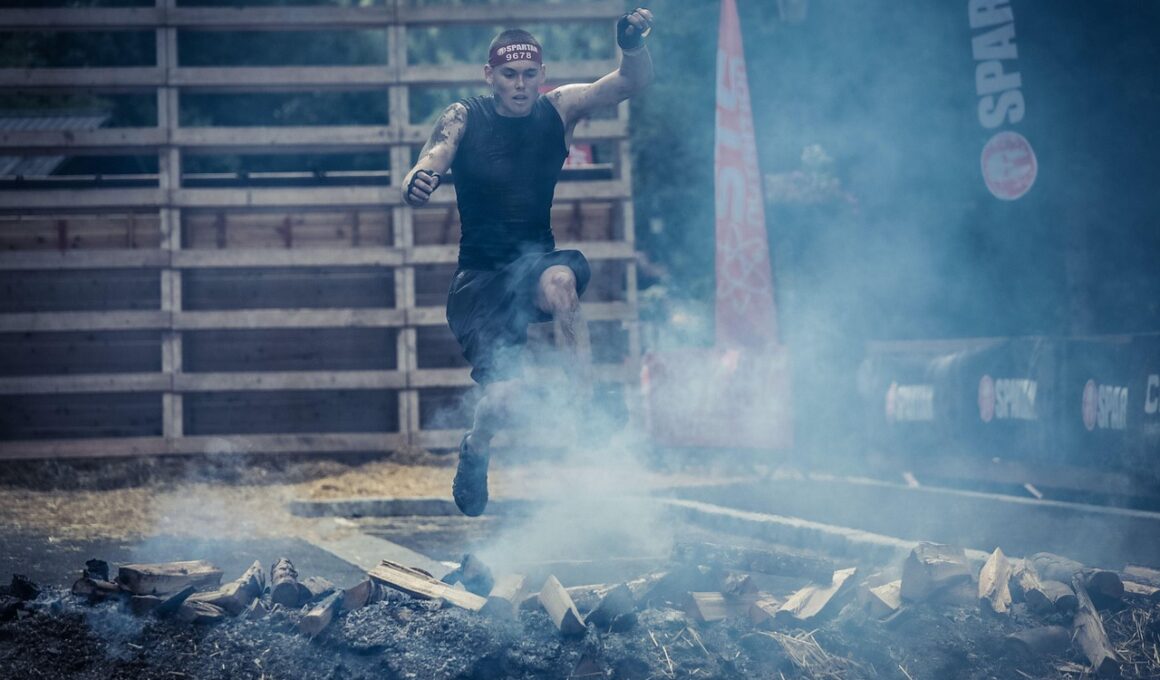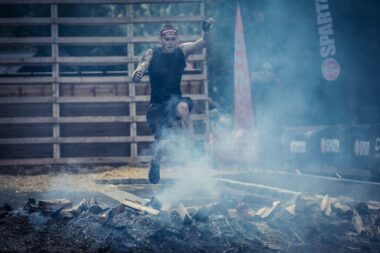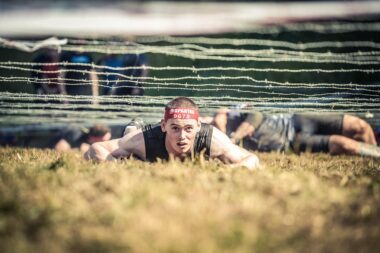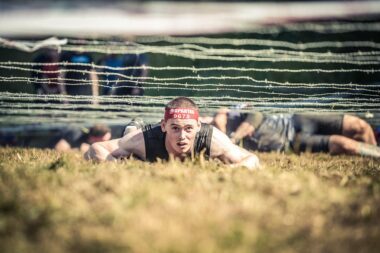Overcoming Mental Challenges in Virtual Obstacle Course Races
Participating in virtual obstacle course races offers unique challenges. Athletes must not only conquer physical obstacles but also navigate mental hurdles that can arise in their journey. Self-doubt may creep in, questioning one’s abilities. This psychological barrier can hinder performance and hinder progress. To overcome these challenges, it is essential to develop a strong mental strategy. Positive affirmations and visualization techniques empower racers to visualize success, thereby enhancing their overall confidence. Setting achievable goals is beneficial as it allows participants to focus on incremental improvements rather than overwhelming expectations. Mentally preparing for these courses involves familiarizing oneself with the virtual format, including understanding rules and course layout. Maintaining a supportive online community can provide encouragement and accountability, fostering motivation and shared experiences among participants. Engaging in regular practice sessions, such as online simulations or training webinars, helps build both skills and mental resilience. As racers gain experience, they often discover their strength lies not just in completing courses but in the journey itself, learning to embrace and overcome obstacles. Ultimately, mental fortitude contributes significantly to success in every sport, especially in virtual challenges where the mind plays an integral role.
Setting mental goals is vital for success in virtual obstacle course races. When participating in an event, having specific, measurable objectives creates a sense of direction. For example, rather than focusing solely on finishing, one might aim for personal best times or improved agility in navigating obstacles. This way, athletes concentrate their energy on tangible achievements, reducing pressure and anxiety. Additionally, establishing a daily routine that incorporates both physical training and mental conditioning fosters a balanced approach to racing. Practicing mindfulness techniques such as meditation or deep breathing exercises helps participants remain calm and focused during events. Listening to motivational podcasts or reading inspirational quotes can also provide valuable mental boosts, reinforcing the importance of perseverance. Engaging with fellow participants through forums, social media, and group chats strengthens camaraderie and maintains motivation. Sharing experiences and tips creates a supportive environment that encourages growth. Furthermore, utilizing various apps and resources designed specifically for mental training can enhance an athlete’s mindset. Focusing on these aspects will help individuals build a resilient mindset that not only prepares them for race challenges but also positively impacts other areas of life.
Building Resilience Through Positive Thinking
Resilience is a critical quality for participants in virtual obstacle course races, significantly influenced by one’s mindset. Maintaining a positive attitude amidst challenges can dramatically alter performance. Embracing hurdles instead of avoiding them cultivates a growth mindset, allowing athletes to view setbacks as opportunities for learning. This reframing technique encourages participants to persevere through tricky classes and demanding workouts, fostering a culture of continual improvement. Incorporating daily affirmations into one’s routine, such as declaring ‘I am strong’ or ‘I can overcome this,’ instills a powerful sense of self-belief. Visualization exercises also play a supportive role in cementing this positive outlook, leading racers to imagine themselves conquering each obstacle confidently. Engaging in gratitude practices, noting the progress made or the lessons learned can enhance satisfaction and fulfillment. These mental frameworks not only improve race-day performance but also provide invaluable lessons applicable in various aspects of life. As racers encounter challenges, they garner strength from their resilience, forming a solid foundation for future achievements. Ultimately, cultivating this mental approach becomes essential in overcoming obstacles in both racing and everyday situations.
Preparation in advance ensures racers perform at their best for virtual obstacle courses. Familiarizing oneself with the course layout, rules, and structure creates improved confidence. Knowledge eliminates uncertainty, leading to clearer strategies for obstacles. Taking time to study potential challenges ahead allows for focused mental training, enabling athletes to anticipate difficulties. Incorporating various training methods into one’s routine keeps participants engaged and prepared. For example, strength-building workouts, agility drills, and resistance training cater to physical readiness. However, don’t neglect mental training components. Daily visualization exercises, imagery techniques, and mental rehearsals enhance performance. These exercises create a mental ‘roadmap’ of the race, significantly boosting self-esteem. Involving friends and family in training sessions can foster accountability and encouragement. Documenting progress along the way allows for reflection on how far one has come. This promotes a sense of achievement, reinforcing motivation. Utilizing online resources such as forums and training videos presents opportunities for learning from experienced racers and coaches. Furthermore, implementing regular feedback on performance provides insights into areas of improvement. Preparation serves as the cornerstone for overcoming mental barriers and getting through virtual obstacle challenges effectively.
The Importance of Community Support
Community plays a vital role in enhancing the experiences of athletes in virtual obstacle course races. Engaging with fellow racers provides emotional support, motivation, and a sense of belonging. Online forums, groups, and social media platforms create spaces for participants to share triumphs, challenges, and training tips. These interactions contribute to building relationships that enhance the overall racing experience, making obstacles feel less daunting. Relying on this community fosters accountability, as individuals work towards their goals together. Celebrating each other’s achievements, whether finishing a race or mastering a skill, reinforces motivation and resilience. Additionally, participating in group challenges encourages friendly competition and collaboration that can elevate mental fortitude. Online events offering live chats and interactive sessions keep participants connected, promoting teamwork in virtual environments. Engaging with more experienced racers can provide valuable insights into mental strategies that others have successfully employed. Athletes benefit from group discussions about strategies, mental approaches, and overcoming barriers. Establishing connections within the obstacle course racing community empowers individuals to face their personal challenges head-on, leading to growth both on and off the course.
Navigating the unique mindset required for virtual obstacle course races involves embracing challenges and nurturing self-discipline. It’s imperative to understand that discipline goes hand in hand with motivation, fueling participant’s desire to achieve their goals. In doing so, cultivating a structured training schedule allows athletes to prepare effectively, balancing physical and mental aspects. Maintaining consistency during training fosters increased confidence, improving overall performance. Setting short-term milestones creates smaller victories that contribute to long-term achievement. After setting those goals, develop a plan to tackle each one methodically, allowing athletes to create a sense of control over their progress. Furthermore, incorporating enjoyable elements into training can inject excitement into the process, leading to greater engagement and persistence. Exploring different training mediums, such as dance, yoga, or martial arts, can offer fresh perspectives on overcoming mental challenges. Flexibility and adaptability enable racers to approach virtual obstacles with an open mind. Connecting with personal growth through physical challenges enriches mental toughness and endurance. Athletes find themselves equipped, not just for races but for overall life experiences, building resilience that transcends athletic endeavors.
Conclusion: Embracing the Journey
In conclusion, embracing the mental challenges of virtual obstacle course races empowers participants to thrive both as athletes and individuals. Developing mental resilience, fostering community support, and maintaining a positive mindset significantly contribute to success. As racers navigate their personal journeys, it becomes essential to acknowledge the transformative growth that comes through tackling these obstacles. Each challenge faced leads to new insights, strengthening both physical capabilities and psychological fortitude. By recognizing that the journey matters just as much as the destination, athletes gain deeper appreciation and fulfillment from their experiences. Virtual racing offers unique advantages, allowing for flexibility and remote participation while connecting with others globally. Exploring self-discovery through obstacle racing cultivates valuable life skills, reinforcing tenacity, discipline, and goal-setting. Ultimately, overcoming mental challenges provides a rich tapestry of lessons, benefiting not only athletic pursuits but personal growth as well. Embracing this journey leads participants to realize that every obstacle conquered brings one closer to their best self, enriching their lives with newfound perspectives and strengths. The narrative of virtual obstacle racing becomes one of resilience, courage, and triumph, reminding us all of the incredible potential within.
This is additional content to ensure all guidelines are met. Ensure that the challenge of virtual games primarily focuses on fostering awareness and developing psychological acumen. Competitors may feel isolated but they also connect online for mutual support, enhancing their overall experience. This blend of mental and physical efforts cultivates a holistic approach to self-improvement. As racers learn not just to survive the courses but to thrive through strategic planning, they illustrate the importance of preparation and mindfulness. Investing time in understanding personal strengths and weaknesses coupled with aspirations can lead to more significant achievements overall. Engaging with a wider community not only provides resources but also celebrates progress collectively. Understanding how mental struggles align with physical performance aids participants in applying those lessons beyond racing. Ultimately, the impact of overcoming challenges lies not only in success within the races but in the broader skills applied to life scenarios. Integrating this understanding will develop a newer generation of racers who approach challenges with resilience and innovative tactics.





